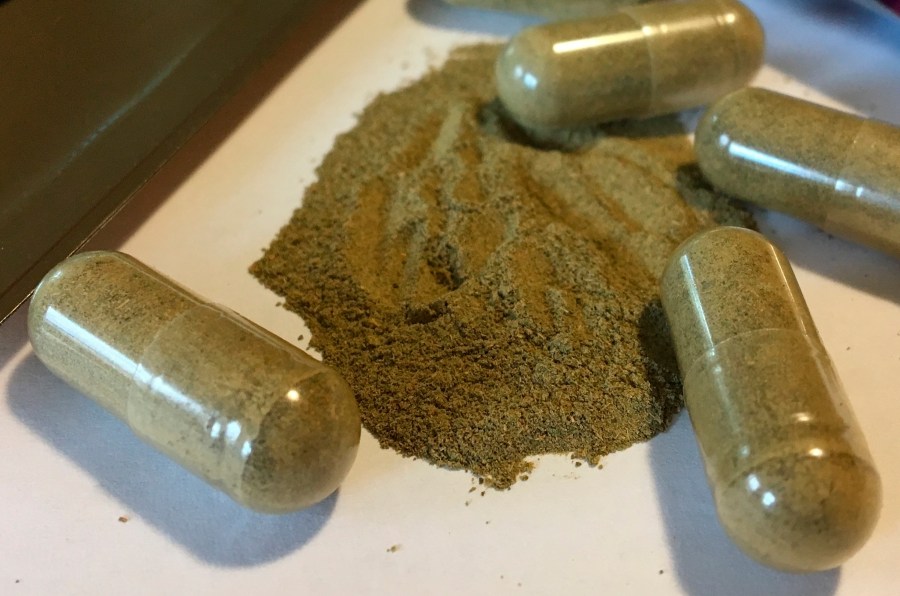KANSAS CITY, Mo. — The Missouri Department of Health and Senior Services (DHSS) released a warning about an unregulated drug that mimics the effects of opioids.
7-OH, short for 7-hydroxymitragynine, comes from kratom, a tropical tree. It’s a psychoactive compound that has similar effects in the brain as opioids.
‘The next opioid crisis’: Kansas City woman shares experience with 7-OH
Kratom and its derivatives like 7-OH are unregulated by the FDA, but the agency has repeatedly said it’s working to classify it as a Schedule 1 drug.
Earlier this month, FOX4 spoke with a woman who went to drug rehab after she began using 7-OH.
“As soon as I took that 7-OH, it was like taking heroin again for the first time,” 25-year-old Madison Mcmanness told FOX4. “It was really hard lying in the detox for three days, just catatonic. Everything was on fire. It hurt. I just didn’t want to do it anymore.”
DHSS said the recent increased availability and use of 7-OH poses significant health risks, including dependence, addiction—even death.
“Because 7-OH acts on opioid receptors, it can cause respiratory depression, overdose and death,” the department said in a news release.
“Isolated 7-OH is currently untested in humans, unregulated, not proven safe or effective for any use, and sold to the public without restriction. Until safety data is available for human consumption, Missourians are advised to avoid these products.”
DHSS said both 7-OH and kratom have been marketed as “natural” promoters of alertness and remedies for pain, anxiety and/or opioid withdrawal. However, isolated 7-OH products marketed and sold in Missouri have a far higher concentration – and therefore far higher potency – than natural kratom.
“Research data reveals 7-OH has 13 times the potency of morphine at the opioid receptors,” DHSS said.
FOX4 Forecast: Cloudy & chilly start to November
7-OH products are sold in stores such as smoke shops, gas stations, convenience stores and online shops. DHSS said they can be gummies, candies, imitation ice cream cones, liquid shots, tablets or powders.
The department said combining 7-OH with other substances – alcohol, other sedatives, illicit substances, or certain prescribed medications – can increase the risk of overdose.
As of Sept. 30, the Missouri Poison Center has received 47 reports of exposures involving kratom or another product containing 7-OH, this year alone. It received 25 reports in 2024 and 19 reports in 2023.
DHSS said the Missouri Poison Center began tracking isolated 7-OH use within the past three months, with three reports of exposures to 7-OH. Of the three reported during that time, one was evaluated in a health care facility, according to DHSS.
Anyone who suspects an overdose should call 911 immediately and administer naloxone, or Narcan, if available. Call 911 immediately if someone is unresponsive, nearing unresponsiveness or seriously ill.
You can find agencies and organizations that distribute naloxone in Missouri here and in Kansas here. Kansas residents can request a free naloxone kit by clicking here.
Those in need of help for 7-OH dependency or addiction can call 988 or the Missouri Department of Mental Health at 573-751-4942. To find treatment locations, some of which are available immediately or same-day, click here.
If you have concerns about 7-OH, seek medical care or call the Poison Help Line at 1-800-222-1222.
Copyright 2025 Nexstar Media, Inc. All rights reserved. This material may not be published, broadcast, rewritten, or redistributed.
